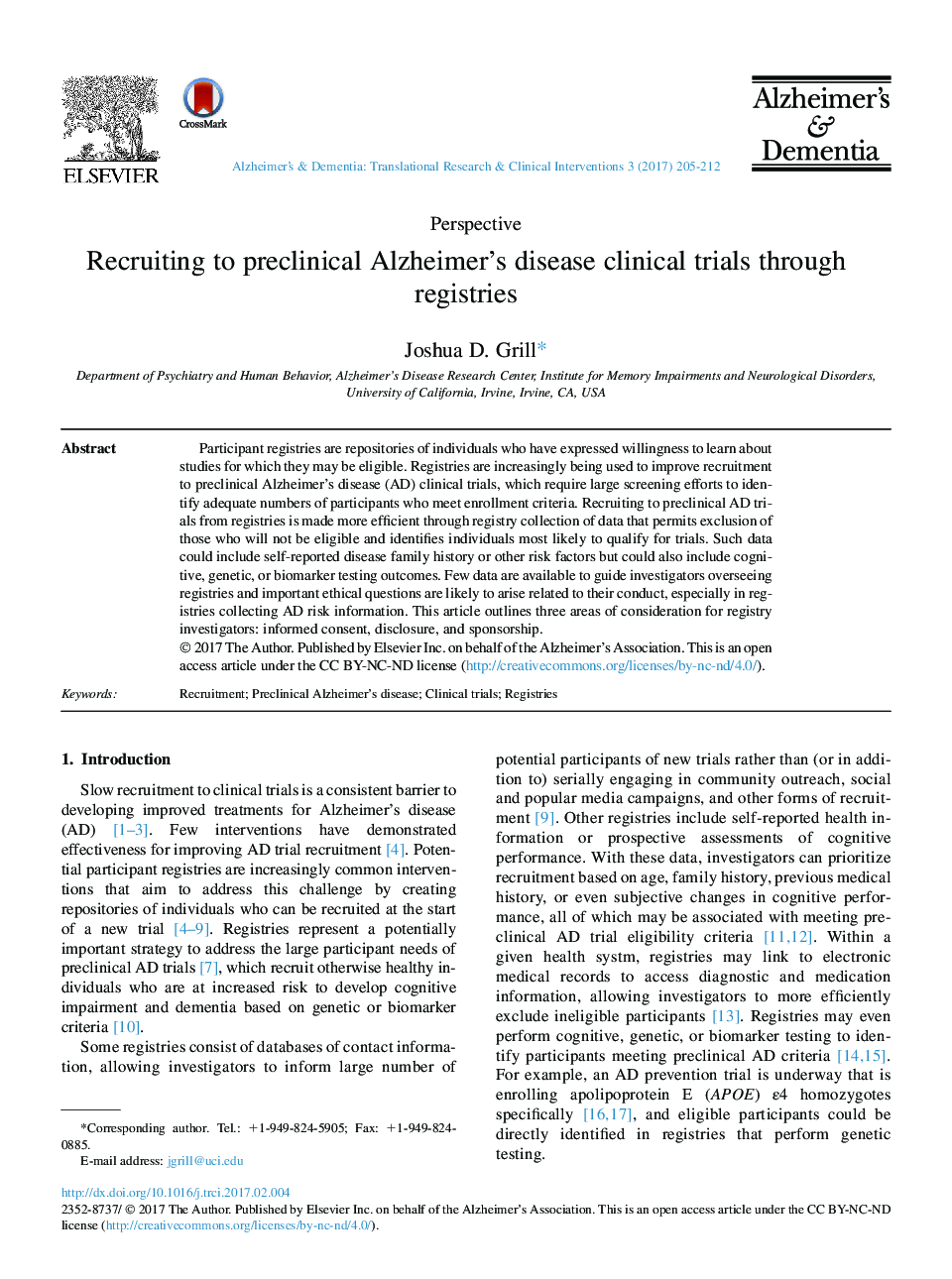| Article ID | Journal | Published Year | Pages | File Type |
|---|---|---|---|---|
| 8680610 | Alzheimer's & Dementia: Translational Research & Clinical Interventions | 2017 | 8 Pages |
Abstract
Participant registries are repositories of individuals who have expressed willingness to learn about studies for which they may be eligible. Registries are increasingly being used to improve recruitment to preclinical Alzheimer's disease (AD) clinical trials, which require large screening efforts to identify adequate numbers of participants who meet enrollment criteria. Recruiting to preclinical AD trials from registries is made more efficient through registry collection of data that permits exclusion of those who will not be eligible and identifies individuals most likely to qualify for trials. Such data could include self-reported disease family history or other risk factors but could also include cognitive, genetic, or biomarker testing outcomes. Few data are available to guide investigators overseeing registries and important ethical questions are likely to arise related to their conduct, especially in registries collecting AD risk information. This article outlines three areas of consideration for registry investigators: informed consent, disclosure, and sponsorship.
Related Topics
Life Sciences
Neuroscience
Neurology
Authors
Joshua D. Grill,
